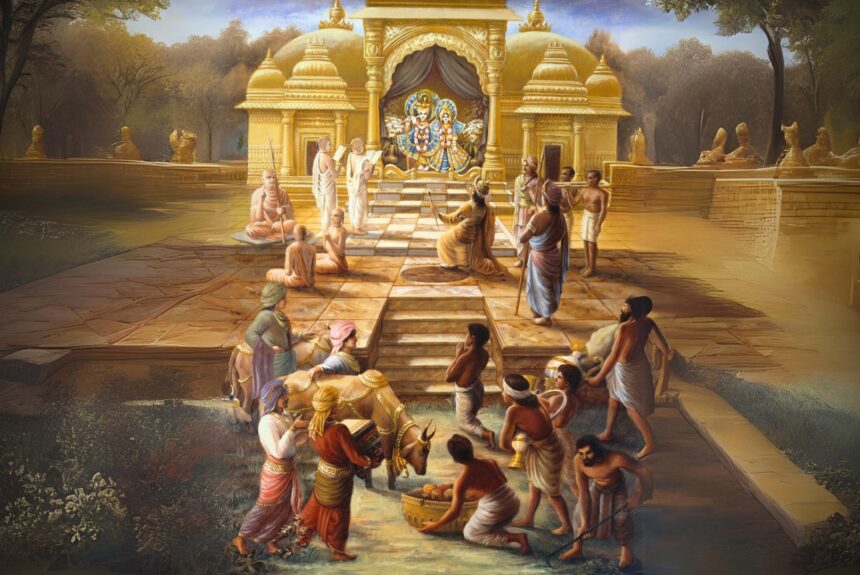By Ananta Gopal Das | Head Pujari (Priest) at Bhaktivedanta Manor
Mainstream literature divides people into two categories; introverts tend to keep to themselves, away from crowds, and extroverts are those who draw energy from social interactions.
Srimad Bhagavatam also divides devotees into two groups, namely goṣṭhyānandīs—those devotees who are on the constant move, preaching and sharing spiritual knowledge—and bhajanānandīs—devotees who prefer to stay in one place and mainly focus on their spiritual development.
What happens when introverts or extroverts become devotees? Do they need to change their nature to make tangible spiritual advancement?
Rupa Goswāmī, a prominent teacher in the Gaudiya Vaishnava lineage, explains:
Nectar of Instruction, verse 1: A sober person who can tolerate the urge to speak, the mind’s demands, the actions of anger and the urges of the tongue, belly and genitals is qualified to make disciples all over the world.
The verse explains to us that the key element for spiritual practice to bear fruit is to become a Goswāmī—a person who can control his senses, or in other words, a person who is master of the senses, and not godāsa, a servant of the senses.
Can introverts and extroverts become advanced devotees simply by controlling the senses?
Srila Prabhupada comments on that in the Srimad Bhagavatam:
Srimad Bhagavatam 8.2.30 purport: The soldiers in this Krishna consciousness movement must always possess physical strength, enthusiasm and sensual power. To keep themselves fit, they must therefore place themselves in a normal condition of life. What constitutes a normal condition will not be the same for everyone, and therefore there are divisions of varṇāśrama—brāhmaṇa, kṣatriya, vaiśya, śūdra, brahmacarya, gṛhastha, vānaprastha and sannyāsa.
For a devotee to take full advantage of spiritual practice, he must be situated according to his nature, and each person requires a different setup to extract maximum benefits from spiritual practice.
Therefore, we have a variety of devotees: priests who worship the temple deities and live a simple life in the mode of goodness; ambitious people of a creative nature who prefer to lead, protect, and manage society. And others who spend time in nature, surrounded by animals, and living on the land.
At that stage, we will become spiritually transcendental—beyond ordinary limitations.
Bhagavad Gita 3.35: Everyone has to cleanse his heart by a gradual process, not abruptly.

